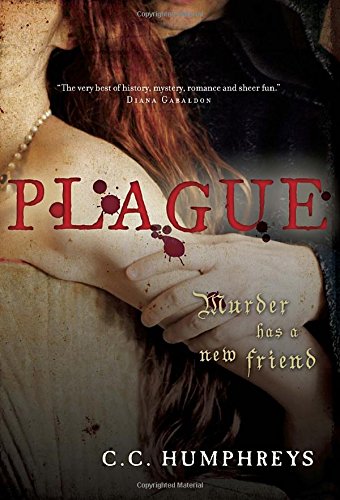Plague
Restoration England is often portrayed as a licentious romp where Charles II and his bevy of mistresses enjoyed an endless party. The end of the brutal civil war that saw Charles’s father beheaded brought about a joyous return to life and art, including a fervor for the theatre, where women took the stage for the first time.
In C.C. Humphreys’ vivid and suspenseful new novel, Plague, the first in a trilogy about this fascinating era, the atmosphere is decidedly darker. The story is told through the eyes of a traumatized veteran-turned-highwayman, a determined thief-taker dogged by destitution, and a troubled actress lured into a fanatic’s deadly obsession, and Humphreys brings to bear all his dramatic skills on this compelling tale of mayhem and murder. The fetid labyrinth of London’s backstreets is so pungently drawn, you can smell the leavings stuck to your boots, while the advent of the plague that ravaged the city offers a terrifying backdrop to the characters’ quest to unmask a savage killer.
Yet it is the cast itself, whom Humphreys invests with panache and very human foibles, who are the real draw here. These are people huddled on the fringes of society, where life is cheap and no one is safe, not from hunger, crime, or the disease creeping from the gutters like the relentless hordes of rats. Humphreys lightens the intensity with his characters’ warmth and period-flavored quips; despite the danger at every turn, we cannot help but root for these hardy survivors, though we know going in that not everyone will make it out alive.
Humphreys is well known for his talents in the historical fiction arena, and Plague may be his best work yet – a triumphant tour de force that is part adventure, part drama, and full of unexpected thrills.










